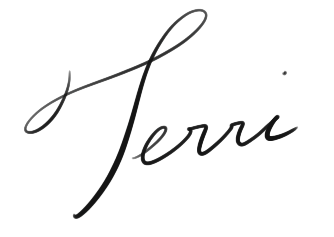Ariel K. Moniz (she/her) is a queer Black poetess and…
April was National Poetry Month, so we thought we’d celebrate by sharing a few of our favorite poems. Poetry is one of the most universally beloved and ancient forms of turning the human experience into connection, a form of communication that transcends time and the rules of language. A poem can say a dozen different things to each individual. We bring ourselves to poetry. It is a space for the sincere, human experience. We are honored to create a space for all forms of creativity in our publication, and will always have a soft spot for the poems that make their way to us. We hope that some of these poems below can inspire you and bring some pleasure to your days as they have to ours.
We hope the spring season has been treating you well (or the autumn season, for our friends in the southern hemisphere!).
Ariel’s Favorite Poems
The Stolen Child by W.B Yeats
WHERE dips the rocky highland
Of Sleuth Wood in the lake,
There lies a leafy island
Where flapping herons wake
The drowsy water rats;
There we’ve hid our faery vats,
Full of berrys
And of reddest stolen cherries.
Come away, O human child!
To the waters and the wild
With a faery, hand in hand,
For the world’s more full of weeping than you can understand.
Where the wave of moonlight glosses
The dim gray sands with light,
Far off by furthest Rosses
We foot it all the night,
Weaving olden dances
Mingling hands and mingling glances
Till the moon has taken flight;
To and fro we leap
And chase the frothy bubbles,
While the world is full of troubles
And anxious in its sleep.
Come away, O human child!
To the waters and the wild
With a faery, hand in hand,
For the world’s more full of weeping than you can understand.
Where the wandering water gushes
From the hills above Glen-Car,
In pools among the rushes
That scarce could bathe a star,
We seek for slumbering trout
And whispering in their ears
Give them unquiet dreams;
Leaning softly out
From ferns that drop their tears
Over the young streams.
Come away, O human child!
To the waters and the wild
With a faery, hand in hand,
For the world’s more full of weeping than you can understand.
Away with us he’s going,
The solemn-eyed:
He’ll hear no more the lowing
Of the calves on the warm hillside
Or the kettle on the hob
Sing peace into his breast,
Or see the brown mice bob
Round and round the oatmeal chest.
For he comes, the human child,
To the waters and the wild
With a faery, hand in hand,
For the world’s more full of weeping than he can understand.
Her Kind by Anne Sexton
I have gone out, a possessed witch,
haunting the black air, braver at night;
dreaming evil, I have done my hitch
over the plain houses, light by light:
lonely thing, twelve-fingered, out of mind.
A woman like that is not a woman, quite.
I have been her kind.
I have found the warm caves in the woods,
filled them with skillets, carvings, shelves,
closets, silks, innumerable goods;
fixed the suppers for the worms and the elves:
whining, rearranging the disaligned.
A woman like that is misunderstood.
I have been her kind.
I have ridden in your cart, driver,
waved my nude arms at villages going by,
learning the last bright routes, survivor
where your flames still bite my thigh
and my ribs crack where your wheels wind.
A woman like that is not ashamed to die.
I have been her kind.
Two-Headed Calf by Laura Gilpin
Tomorrow when the farm boys find this
freak of nature, they will wrap his body
in newspaper and carry him to the museum.
But tonight he is alive and in the north
field with his mother. It is a perfect
summer evening: the moon rising over
the orchard, the wind in the grass. And
as he stares into the sky, there are
twice as many stars as usual.
Honorable Mentions:
Lady Lazarus by Sylvia Plath
A Visitor by Mary Oliver
So, Stranger by Topaz Winters
Because I Could Not Stop For Death by Emily Dickinson
In The Future, I Love The Nighttime by Olivia Gatwood
Terri’s Favorite Poems
In Passing – Lisa Mueller
How swiftly the strained honey
of afternoon light
flows into darkness
and the closed bud shrugs off
its special mystery
in order to break into blossom
as if what exists, exists
so that it can be lost
and become precious
The More Loving One – W. H. Auden
Looking up at the stars, I know quite well
That, for all they care, I can go to hell,
But on earth indifference is the least
We have to dread from man or beast.
How should we like it were stars to burn
With a passion for us we could not return?
If equal affection cannot be,
Let the more loving one be me.
Admirer as I think I am
Of stars that do not give a damn,
I cannot, now I see them, say
I missed one terribly all day.
Were all stars to disappear or die,
I should learn to look at an empty sky
And feel its total dark sublime,
Though this might take me a little time.
I Am Too Much Alone In This World, Yet Not Alone – Rainer Maria Rilke
I am much too alone in this world, yet not alone
enough
to truly consecrate the hour.
I am much too small in this world, yet not small
enough
to be to you just object and thing,
dark and smart.
I want my free will and want it accompanying
the path which leads to action;
and want during times that beg questions,
where something is up,
to be among those in the know,
or else be alone.
I want to mirror your image to its fullest perfection,
never be blind or too old
to uphold your weighty wavering reflection.
I want to unfold.
Nowhere I wish to stay crooked, bent;
for there I would be dishonest, untrue.
I want my conscience to be
true before you;
want to describe myself like a picture I observed
for a long time, one close up,
like a new word I learned and embraced,
like the everday jug,
like my mother’s face,
like a ship that carried me along
through the deadliest storm.
Honorable Mentions:
Her Voice – Oscar Wilde
The Ballad Of Reading Gaol – Oscar Wilde
Rivals – William Walsh
I cry your mercy—pity—love!—ay, love – John Keats


Ariel K. Moniz (she/her) is a queer Black poetess and Hawaii local currently living abroad. She is a co-founder of The Hyacinth Review, and serves as a poetry reader for The Lumiere Review as well as the social media manager for Liminal Transit Review. She is the winner of the 2016 Droste Poetry Award and a Best of the Net nominee. Her writing has found homes with Blood Bath Literary Zine, Sledgehammer Literary Journal, Black Cat Magazine, and Sunday Mornings at the River Press, among others. She holds a B.A in English from the University of Hawaii at Hilo, where she once served as the editor-in-chief of Kanilehua Art & Literary Magazine. You can find her on her website at kissoftheseventhstar.home.blog, on Twitter @kissthe7thstar, on Instagram @kiss.of.the.seventh.star, or staring out to sea.











